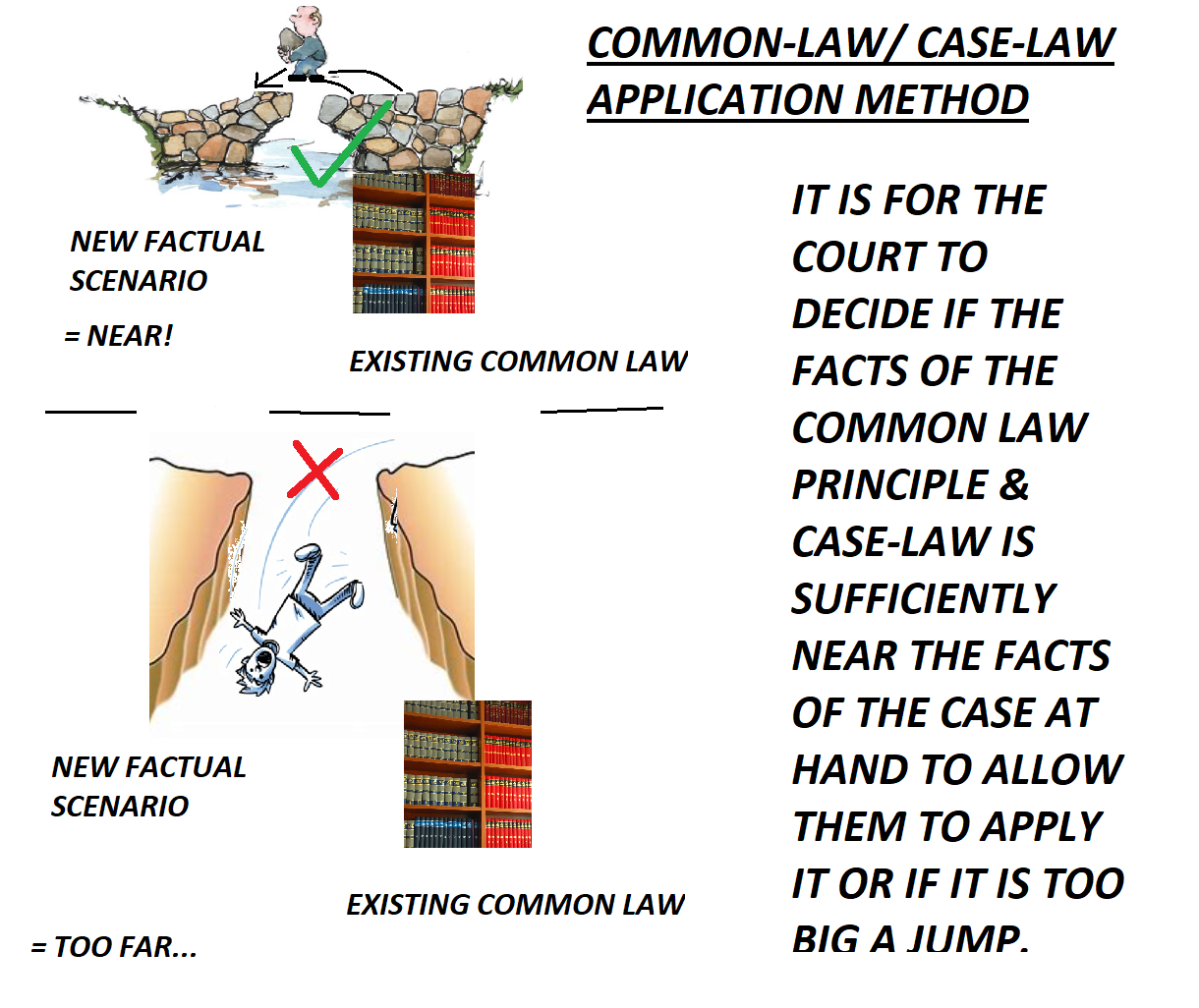Woolwich Equitable Building Society v IRC 1993 AC 70
Citation:Woolwich Equitable Building Society v IRC 1993 AC 70
Rule of thumb:If a common law principle is invoked in a case, but none of the case-law already decided are near it, and it is not an extreme situation, should the Court extend the common law to create liability? No, this is precisely the method for arguing that the common law does not apply and liability should not be imposed against the person being sued.
Judgment:
Where the principles and case-law from the common law are too far from removed from the new situations being presented to the Court, and the matter is very debateable, then the common law should not applied as this would lead to a Judge overstepping their mark and creating law without a democratic mandate to do so.

Ratio-decidendi:
‘This is for the your Lordships’ House to recognise such a principle would overstep the boundary which we traditionally set for ourselves, separating the legitimate development of the law by the Judges from legislation. It was strongly urged by Mr Glick, in his powerful argument... that we would be trespassing beyond that boundary if we were to accept the argument of Woolwich. I feel bound however to say that, although I am well aware of the existence of the boundary, I am never quite sure where to find it. Its position seems to vary from case to case. Indeed, if it were to be as firmly and clearly drawn as some of our mentors would wish, I cannot help feeling that a number of leading cases in your Lordships’ House would never have been decided the way they were. For example, the minority view would have prevailed in Donghue v Stevenson, our modern law of judicial review would never have developed from its old, ineffectual, origins; and Manerva injunctions would never have seen the light of day. Much seems to depend on the circumstances of the case’, Lord Goff
Warning: This is not professional legal advice. This is not professional legal education advice. Please obtain professional guidance before embarking on any legal course of action. This is just an interpretation of a Judgment by persons of legal insight & varying levels of legal specialism, experience & expertise. Please read the Judgment yourself and form your own interpretation of it with professional assistance.

